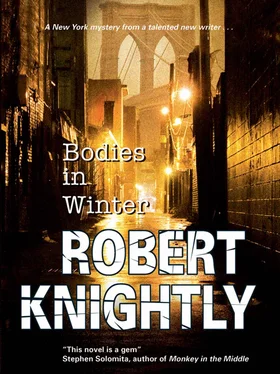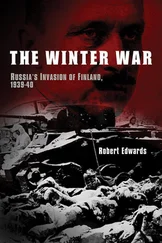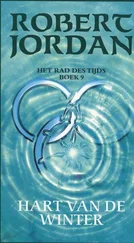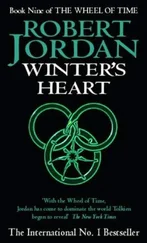Robert Knightly - Bodies in Winter
Здесь есть возможность читать онлайн «Robert Knightly - Bodies in Winter» весь текст электронной книги совершенно бесплатно (целиком полную версию без сокращений). В некоторых случаях можно слушать аудио, скачать через торрент в формате fb2 и присутствует краткое содержание. Жанр: Полицейский детектив, на английском языке. Описание произведения, (предисловие) а так же отзывы посетителей доступны на портале библиотеки ЛибКат.
- Название:Bodies in Winter
- Автор:
- Жанр:
- Год:неизвестен
- ISBN:нет данных
- Рейтинг книги:4 / 5. Голосов: 1
-
Избранное:Добавить в избранное
- Отзывы:
-
Ваша оценка:
- 80
- 1
- 2
- 3
- 4
- 5
Bodies in Winter: краткое содержание, описание и аннотация
Предлагаем к чтению аннотацию, описание, краткое содержание или предисловие (зависит от того, что написал сам автор книги «Bodies in Winter»). Если вы не нашли необходимую информацию о книге — напишите в комментариях, мы постараемся отыскать её.
Bodies in Winter — читать онлайн бесплатно полную книгу (весь текст) целиком
Ниже представлен текст книги, разбитый по страницам. Система сохранения места последней прочитанной страницы, позволяет с удобством читать онлайн бесплатно книгу «Bodies in Winter», без необходимости каждый раз заново искать на чём Вы остановились. Поставьте закладку, и сможете в любой момент перейти на страницу, на которой закончили чтение.
Интервал:
Закладка:
I took that thought with me to the Sparkle Inn. Sparkle’s was more than the place where everybody knew my name. It was the place where everybody had, at one time or another, looked into that heart of darkness at the epicenter of a cop’s life. Fraternity and brotherhood are the words traditionally used to describe the herding instinct of cops. But it was a new age and several female detectives greeted me when I came through the door. They included, among their number, Nydia Santiago. Nydia had once described my partner as ‘Martha Stewart with a badge.’
The Sparkle’s owner, Michael Blair, had a Dewar’s and water awaiting me by the time I reached the bar. Blair was in his early fifties, a former detective from the Eight-Three who’d mortgaged his pension to buy the joint. He had pale blue eyes that darted suddenly to yours, as if he was trying to catch you in an unguarded moment. He hit me with one of those looks now.
‘I heard,’ he said as I found a stool, ‘you stumbled into the Lodge case.’
Before replying, I raised the traditional toast to Sparkle, who stood behind the bar. Sparkle was a life-size manikin constructed from papier mache. Long ago, before Blair purchased the bar, somebody had painted Sparkle’s face and hair so that she slightly resembled Marilyn Monroe, then dressed her in a sequinned gown. Lit by a spotlight mounted just ahead of her toes, Sparkle did, indeed, sparkle.
‘Bad news travels fast,’ I finally said. ‘Just as well.’
‘Why’s that?’
‘Because I came here looking for a heads-up.’
This was an avenue closed to my partner. As I said, she’d never visited Sparkle’s, or any other cop bar, which was probably for the best. That indifference to the opinions of her peers, which I admired, would have gotten a cold reception at the Sparkle Inn.
But that wasn’t true for me. I was the guy you could go to for a favor, even for a short-term loan, maybe enough to settle your bar bill. I was the guy you could talk to about the wife, the kids or the girlfriend. I was the guy who listened to your endless gripes and actually seemed to care. I was the guy who got along with everyone.
‘I was in the Precinct when Lodge killed the perp,’ Blair readily admitted, ‘only I didn’t catch the case. The man you need to talk to is seated at his usual table, but there’s no guarantee he’ll give you the time of day.’
I glanced over my shoulder at the broad back and wide shoulders of a notoriously anti-social detective named Linus Potter. Potter’s neck was so much thicker than his small head that he appeared to be defectively manufactured. Perhaps that was why he usually parked himself in a corner and drank with his back to his peers.
When I carried my drink to his table and set it down, Potter didn’t so much as glance in my direction. Nor did he budge when I took a seat. Only when I finally said, ‘I caught the Lodge case and I’m looking for some guidance,’ did he raise a pair of small blue eyes that looked right through me.
I responded by folding my arms across my chest. Despite the hostile glare, Potter was an easy read. Once he realized that he couldn’t intimidate me, he’d either tell me the truth or tell me to go fuck myself. Indecision was not in Potter’s DNA.
‘It was a nothin’ case,’ he finally growled. ‘We got everything but a confession. And we woulda got that, too, except the hump was too drunk to remember what he did.’
Potter went on to describe the evidence against Lodge in enough detail to convince me that his own memory was accurate. And that evidence was impressive. Nevertheless, as the details accumulated, I realized there was a weak link in this perfect chain. Anthony Szarek, the man Potter called the Broom, had provided Russo with an alibi and put Lodge alone with the prisoner. But who vouched for Tony Szarek, a cop unfit for any duty beyond running out for doughnuts and sweeping the floor?
‘This cop, Szarek, is he still on the job?’ I asked.
‘Retired three years ago.’
‘You have any idea where to find him?’
‘Matter of fact, I know exactly where to find the Broom.’ Potter’s smirk was positively gleeful. He’d been setting me up for this punch line all along.
‘And where’s that?’
‘Mount Olivet Cemetery. He ate his gun two weeks ago.’ Potter leaned forward to jab a thick finger into my shoulder. ‘What I heard, the Good Life didn’t agree with the Broom. You know the one I’m talkin’ about? The one that goes from the rented room to the fucking bar to the rented room to the fucking bar. All the days of our fucking lives.’
I made one more stop, at a YMCA swimming pool on East Twenty-Third Street in Manhattan. The pool was managed by Conrad Stehle, my former high school swimming coach, now retired. Along with a few others, Conrad had given me permission to use the pool at night, when you can swim laps without plowing your head into the bony rump of a frolicking senior citizen.
Not that I had anything against frolicking seniors. In fact, living long enough to become a senior citizen is definitely one of my aims. That’s because, for most of my adolescence, I didn’t expect to make twenty-one.
I have little sympathy for lawyers and sociologists who blame criminal behavior on early childhood experience: ‘My client only shot that storekeeper in the face, leaving him to spend the rest of his life contemplating his scar tissue, because his mother was a junkie and he never had a chance.’
The way I see it, there’s no point in looking back. If you blame your parents for your troubles, they can just turn around and blame their own parents, who will most likely blame their parents, who will most likely… What you end up with, if you go too far down this road, is an amoeba blaming a virus.
‘Yo, the mother-fucker messed with my genes. What could I do?’
Personal responsibility is the key to improving your life. That’s my story and I generally stick to it. Still, there’s no getting away from the fact that my life could have taken another direction; that except for a few lucky breaks, I might have been the one in the hump seat, making my own pathetic excuses.
My parents were cross-addicted to every intoxicating substance on the face of the planet, but they were educated and they were not poor. That was my first break.
At age thirteen, I was spending most of my life on the street, dodging the hustlers and the gang bangers as best I could. When I was beaten unconscious at age fourteen, I learned to cultivate an expression that revealed the extent of my determination not to repeat the experience, and to carry a knife. These were necessary adaptations for someone who never considered the possibility of going to his parents, or his teachers, or the cops.
I was halfway to feral by the time I reached high school. There was me and my few streetwise bro’s, and there was everybody else. That you could never trust the everybody else was a simple given. Along with the fool’s belief that doing well in school was for jerks. The way I had it, success was failure. Except in athletics.
Three months into my freshman year, a notice pinned to a cork board in the hallway caught my attention. The swimming team was having try-outs on the following afternoon. Like most of the neighborhood kids, I’d been spending a good part of my summers at the Asser Levi pool on Twenty-Third Street. I was the fastest swimmer among my friends and had even done well against older kids. So, why not?
Twenty-four hours later, carrying my bathing suit and the cleanest towel I could find, I walked into a locker room and met Conrad Stehle. That was my second break.
Conrad got me through high school, berating me, cajoling me, whatever it took. During those years, I ate more dinners at his and his wife’s house than at my own. The funny part is that I never asked myself why he made the effort; I just assumed I was worthy. Even later on, when I realized just how stupid that was, I finally decided the question wasn’t important enough to ask. Conrad Stehle had turned a punk kid with a bad attitude into a high school graduate, a punk kid who’ll be forever grateful, and not only for the diploma. Conrad made me a swimmer, as well, long distance as it turned out. In my senior year, I was among the better high school swimmers in New York State. For a kid with few positive accomplishments, the cheap trophies I earned were shields that protected me from the street’s many temptations.
Читать дальшеИнтервал:
Закладка:
Похожие книги на «Bodies in Winter»
Представляем Вашему вниманию похожие книги на «Bodies in Winter» списком для выбора. Мы отобрали схожую по названию и смыслу литературу в надежде предоставить читателям больше вариантов отыскать новые, интересные, ещё непрочитанные произведения.
Обсуждение, отзывы о книге «Bodies in Winter» и просто собственные мнения читателей. Оставьте ваши комментарии, напишите, что Вы думаете о произведении, его смысле или главных героях. Укажите что конкретно понравилось, а что нет, и почему Вы так считаете.












